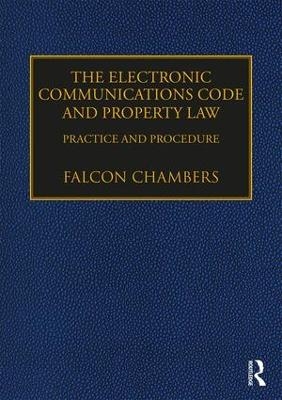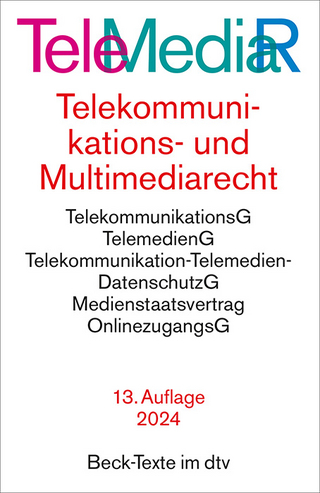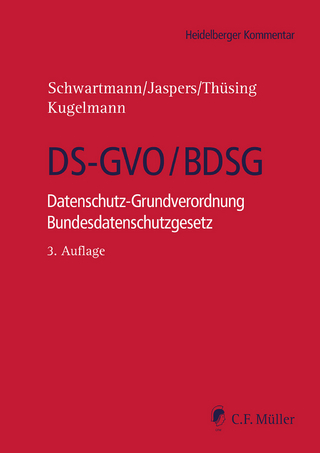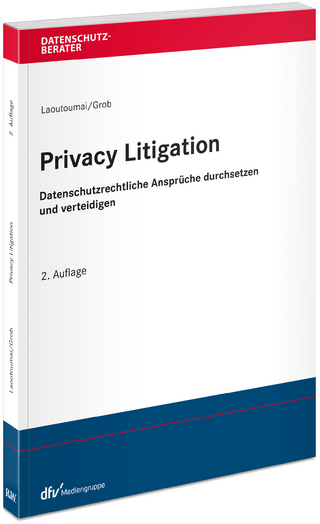
The Electronic Communications Code and Property Law
Routledge (Verlag)
978-1-138-54312-6 (ISBN)
Life now without access to electronic telecommunications would be regarded as highly unsatisfactory by most of the UK population. Such ready access would not have been achieved without methodical and ultimately enforceable means of access to the land on which to install the infrastructure necessary to support the development of an electronic communications network. Successive governments have made such access a priority, regarding it as a principle that no person should unreasonably be denied access to an electronic communications network or electronic communications services. The enactment of the Telecommunications Act 1984 and its revision by the Communications Act in 2003 have played their role in the provision of an extensive electronic infrastructure in the UK, while their reshaping by means of the Digital Economy Act 2017 will continue that process. Throughout that process, a little publicised series of struggles has taken place between telecommunications operators and landowners, as they seek to interpret the Electronic Communications Code by which their rights and obligations have been regulated.
This book describes the problems that accompanied the Old Code (which will continue to regulate existing installations and agreements); and the intended solutions under the New Code. The eminent team of authors explain the background, provisions and operation of the old code and the new one, providing practical and jargon-free guidance throughout. It is sure to become the reference on this topic and is intended as a guide for telecommunications operators, land owners, and of course for their advisers in the legal and surveying professions.
All members of Falcon Chambers, comprising nine Queen’s Counsel and 30 junior barristers, specialise in property law and allied topics, including the various incarnations of the Electronic Communications Code. Members of Falcon Chambers, including all the authors of this new work, have for many years lectured and written widely on the code, and have appeared (acting for both operators and landowners) in many of the few reported cases on the subject of the interface between property law and the code, including for example: Geo Networks Ltd v The Bridgewater Canal Co. Ltd (2010); Geo Networks Ltd v The Bridgewater Canal Co. Ltd (2011); Crest Nicholson (Operations) Ltd v Arqiva Services Ltd (2015); Brophy v Vodafone Ltd (2017).
From Falcon Chambers, London, UK: Guy Fetherstonhaugh QC Jonathan Karas QC Wayne Clark Barry Denyer-Green Stephanie Tozer Oliver Radley-Gardner Toby Boncey With distinguished contributions from Gareth Hale, Partner, Dentons UK and Middle East LLP, and from Luke Maidens, Shulmans LLP.
I
Introduction
Introduction
Legislative history
The Electronic Communications Code 2003: an overview
The European dimension
II
Electronic Communications Code 2003 (the Old Code)
Old Code: general and special regime overview
Operators under the Old Code
Old Code general regime
Old Code general regime: financial provisions
Old Code special regimes
Alteration and removal of apparatus under paragraph 20
Removal of apparatus under paragraph 21
Abandonment of apparatus
Old Code sundry matters
III
Electronic Communications Code 2017 (the New Code)
The Electronic Communications Code and property law: key concepts
What are code rights?
Who may confer code rights?
To whom may code rights be granted?
Over what may code rights be granted?
The agreement conferring code rights
Assignment, upgrading and sharing apparatus
Imposition of code agreements
Termination of code agreements
Modification of code agreements
Rights to require removal
The New Code and the 1954 Act
Transport land rights
Street works, tidal water rights and undertaker’s works
Overhead apparatus
Trees and vegetation
Consideration and compensation under the New Code
IV
Matters common to both codes
Transitional provisions
Notices under the codes
Dispute resolution procedure under the codes
Code avoidance
Electronic communications and planning
Compulsory purchase and entry for exploratory purposes
Telecommunications and non-domestic rates
Land registration
Electronic communications and competition law
The position in Scotland
The role of OFCOM
V
Drafting
Drafting considerations for code agreements
VI
The New Code – Annotated
VII
Appendices
A
Extracts from the Telecommunications Act 1984 and the Communications Act 2003
B
2017 Code and extracts from the Digital Economy Act 2017
C
Statutory Instruments
D
OFCOM Code of Practice
E
OFCOM Template Notices
F
OFCOM Standard Terms
| Erscheinungsdatum | 04.10.2018 |
|---|---|
| Zusatzinfo | 1 Tables, black and white |
| Verlagsort | London |
| Sprache | englisch |
| Maße | 174 x 246 mm |
| Gewicht | 1352 g |
| Themenwelt | Recht / Steuern ► EU / Internationales Recht |
| Recht / Steuern ► Privatrecht / Bürgerliches Recht ► IT-Recht | |
| Recht / Steuern ► Privatrecht / Bürgerliches Recht ► Sachenrecht | |
| ISBN-10 | 1-138-54312-8 / 1138543128 |
| ISBN-13 | 978-1-138-54312-6 / 9781138543126 |
| Zustand | Neuware |
| Haben Sie eine Frage zum Produkt? |
aus dem Bereich


